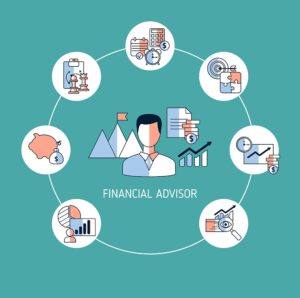Personal finance is a crucial aspect of managing one’s money and achieving financial stability. It involves various strategies and practices that help individuals manage their income, expenses, savings, investments, and protection. By developing and implementing effective personal finance strategies, individuals can gain control over their financial situation, make informed decisions, and work towards their long-term financial goals.
Why Personal Finance Matters

- Financial Security: Personal finance allows individuals to establish a strong financial foundation and build a safety net for unexpected expenses. By managing their income and expenses effectively, individuals can save money for emergencies and protect themselves from financial hardships.
- Debt Management: Personal finance helps individuals understand the importance of debt management and guides them in making wise borrowing decisions. By creating a budget, individuals can prioritize debt repayment and avoid falling into a cycle of high-interest debt.
- Wealth Accumulation: Personal finance provides individuals with the tools and knowledge to grow their wealth over time. By investing wisely, individuals can generate additional income and build a portfolio that supports their long-term financial goals, such as retirement or funding their children’s education.
- Financial Independence: Personal finance empowers individuals to take control of their financial future and achieve financial independence. By developing good financial habits and making informed decisions, individuals can reduce their reliance on others and have the freedom to pursue their goals and dreams.
Key Components of Personal Finance

1. Income Management
Managing income effectively is a fundamental aspect of personal finance. Individuals should have a clear understanding of their total income, including salaries, wages, dividends, and other sources of cash inflow. By budgeting and allocating their income wisely, individuals can ensure that they have enough money to cover their expenses, save, invest, and protect themselves financially.
2. Expense Management
Effective expense management is crucial in personal finance. Individuals should track their expenses and identify areas where they can reduce unnecessary spending. By creating a budget and sticking to it, individuals can ensure that their expenses are less than their income, avoiding debt and financial stress.
3. Savings
Savings play a vital role in personal finance as they provide individuals with a financial cushion for emergencies and future expenses. It is recommended to save a portion of income regularly and aim to have an emergency fund that covers three to twelve months of living expenses. Beyond the emergency fund, individuals should invest their savings to preserve and grow their wealth over time.
4. Investments
Investing is a key component of personal finance that allows individuals to grow their wealth. By investing in assets such as stocks, bonds, or real estate, individuals can generate passive income and increase their net worth. It is essential to conduct thorough financial analysis and seek professional advice to make informed investment decisions.
5. Protection
Protection is an important aspect of personal finance that involves safeguarding oneself from unexpected events and preserving wealth. This includes having appropriate insurance coverage, such as life and health insurance, and engaging in estate and retirement planning. By protecting oneself financially, individuals can mitigate potential risks and ensure the security of their assets.
Services and Strategies for Personal Finance

There are various services and strategies available to individuals to help them manage their personal finances effectively. These include:
- Financial Planning Services: Wealth management firms and financial advisors offer personalized financial planning services that encompass all aspects of personal finance. These professionals can provide guidance on budgeting, investing, retirement planning, and estate planning.
- Loans and Debt Management: Financial institutions provide loans and debt management services to help individuals navigate borrowing decisions, pay off debt, and improve their credit scores.
- Budgeting Tools and Apps: Numerous budgeting tools and mobile apps are available to help individuals track their income and expenses, set financial goals, and monitor their progress. These tools provide insights into spending patterns and suggest ways to optimize financial management.
- Retirement Planning: Retirement planning services assist individuals in creating a comprehensive retirement strategy, including investment planning, tax optimization, and estimating retirement income needs.
- Tax Planning: Tax planning services help individuals minimize their tax liabilities and take advantage of tax benefits and deductions. They ensure compliance with tax laws and help optimize financial decisions based on tax implications.
- Investment Management: Investment management services offer professional portfolio management, asset allocation, and investment advice to individuals seeking to grow their wealth through diverse investment options.
- Insurance Services: Insurance providers offer a range of coverage options, including life insurance, health insurance, home insurance, and auto insurance, to protect individuals from financial risks.
- Credit Card Management: Credit card companies provide tools and resources to help individuals manage their credit card usage responsibly, avoid excessive debt, and improve their credit scores.
- Home and Mortgage Services: Financial institutions and mortgage providers offer services related to home buying, refinancing, and mortgage management to ensure individuals make informed decisions regarding homeownership and mortgage loans.
Personal Finance Strategies for Financial Success
To achieve financial success and stability, individuals should implement the following personal finance strategies:
- Know Your Income: Understand your total income after taxes and deductions to accurately assess your financial resources.
- Create a Budget: Develop a budget that allocates your income towards essential expenses, discretionary spending, savings, and investments. Use budgeting tools or apps to track and manage your expenses effectively.
- Pay Yourself First: Prioritize saving a portion of your income for emergencies and long-term goals. Aim to build an emergency fund that covers three to twelve months of living expenses.
- Limit and Reduce Debt: Minimize borrowing and prioritize debt repayment. Pay off high-interest debt first and explore strategies, such as debt consolidation or refinancing, to manage debt more effectively.
- Borrow Responsibly: Use credit cards wisely and only borrow what you can repay. Pay credit card bills in full each month to avoid accumulating high-interest debt.
- Monitor Your Credit Score: Regularly check your credit score and review your credit report for accuracy. Pay bills on time and manage credit responsibly to maintain a good credit rating.
- Plan for the Future: Establish a retirement savings plan and contribute regularly to build a nest egg for the future. Consider other long-term financial goals, such as homeownership or funding your children’s education, and create a plan to achieve them.
- Buy Insurance: Protect yourself and your assets by having appropriate insurance coverage, such as life, health, home, and auto insurance. Review your insurance policies periodically to ensure they meet your evolving needs.
- Maximize Tax Breaks: Take advantage of available tax deductions and credits to minimize your tax liabilities. Keep track of your expenses and consult with a tax professional to optimize your tax planning.
- Reward Yourself: While practicing financial discipline is essential, it’s equally important to enjoy the fruits of your labor. Set aside funds for occasional indulgences or experiences that bring you joy.
The Role of Personal Finance Education

Personal finance education is crucial in developing financial literacy and empowering individuals to make informed financial decisions. While formal education in personal finance is limited, there are various resources available to enhance financial knowledge and skills:
- Online Blogs: Personal finance blogs provide valuable insights and practical tips on managing finances, investing, and achieving financial goals. Examples include Mr. Money Mustache, CentSai, Million Mile Secrets, and The Points Guy.
- Library Resources: Public libraries offer a wide range of personal finance books and audiobooks that cover topics such as budgeting, debt management, investing, and retirement planning. Popular titles include “I Will Teach You to Be Rich,” “The Millionaire Next Door,” and “Your Money or Your Life.”
- Free Online Classes: Platforms like Morningstar Investing Classroom, EdX, and Purdue University offer free online courses on personal finance. These courses cover topics such as investing, retirement planning, and financial decision-making.
- Podcasts: Personal finance podcasts provide insights, advice, and real-life stories to help individuals improve their financial well-being. Notable podcasts include The Dave Ramsey Show, Freakonomics Radio, Marketplace, and So Money with Farnoosh Torabi.
- Financial Literacy Programs: Non-profit organizations and government agencies offer financial literacy programs and workshops to educate individuals on personal finance topics. These programs cover areas such as budgeting, debt management, and investment basics.
Continued education and self-learning are essential in keeping up with evolving financial trends, products, and regulations. By staying informed and continuously improving financial knowledge, individuals can make sound financial decisions throughout their lives.
Conclusion
Personal finance plays a significant role in achieving financial stability and success. By effectively managing income, expenses, savings, investments, and protection, individuals can take control of their finances, reduce debt, accumulate wealth, and plan for a secure financial future. Through personal finance education and the implementation of sound financial strategies, individuals can navigate the complexities of the financial world and make informed decisions that support their long-term financial goals.




